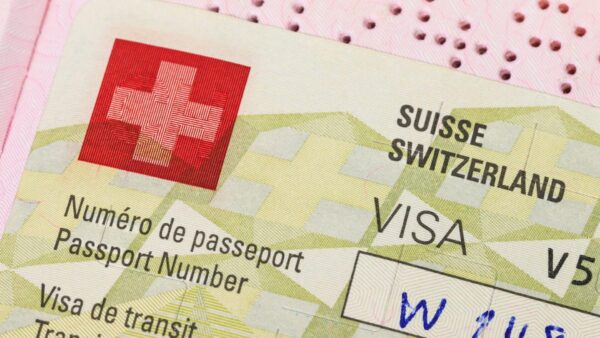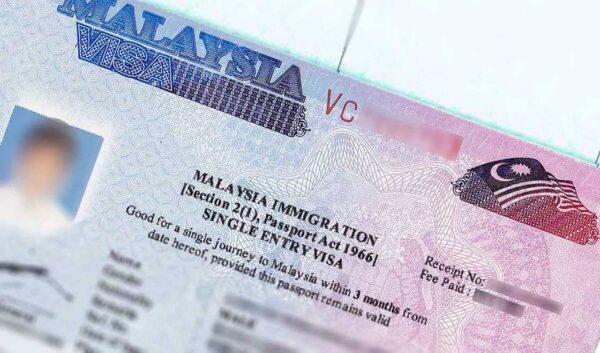Do you want to join Israel's thriving tech scene or contribute to its growing economy? Israel work visa is the answer! Israel is a dynamic and modern country sitting at the intersection of three continents. The beautiful country offers a great blend of culture, historical background, and technological advancement. It also has a very buoyant economy, breathtaking scenery, and warm weather, thus making it ideal for people pursuing international employment opportunities.
Working in Israel can be a dream come true, but the work visa process may appear challenging at first sight. In this article, we will help you with the basic steps on how to get an Israel work visa. We will explain various types of work visas in Israel and their requirements, eligibility, and application process. Be confident as you embark on your job adventure in Israel. There are many opportunities in the Startup Nation; keep reading to turn your career goals into reality.
Benefits of an Israeli Work Visa
1. Working Hours and Vacation Days
The country's average weekly working hours are 42, and workers must take a minimum of 48 hours off. There are roughly nine paid public holidays in Israel. An employee who works full-time is entitled to a minimum of 12 vacation days. Workers are also entitled to roughly one and a half sick days each month. An employee may take sick leave for a maximum of 90 days or around three months.
2. National Health Insurance
Employees are required to pay monthly National Health Insurance premiums, which are deducted from their salaries. According to the law, both employers and employees contribute a part of their employees' salaries to Social Security.
3. Maternity Leave
Female employees who have worked for a company for a full year are eligible for 26 weeks of maternity leave. The worker may take up to seven weeks off prior to the anticipated child's due date, with the remaining time off following the birth. Workers who their company has employed for less than a year are only eligible for 15 weeks of maternity leave. Employees who have multiple or problematic births may be eligible to extend their maternity leave by three weeks. In the sad event that a mother loses her child after giving birth, she is entitled to unpaid maternity leave for up to 60 days.
4. Paternity Leave
An employee may take up to five days of paternity leave after their partner goes into labor. The two days of this leave will be subtracted from their accumulated sick leave, while the first three days will be reimbursed from their accumulated annual vacation.
Types of Work Visa
Israel provides different types of visa options for employment that are designed to accommodate the requirements of various sectors and professions. Let's examine the main types of work visas so you can decide which one would be best for you.
- The B1 Work Visa
This is the most popular type of work visa in Israel, intended for foreign nationals looking for jobs in various industries. An Israeli employer must sponsor your application and provide you with a job in order for you to be eligible for this visa. The B/1 visa usually lasts for a year after it is granted, but don't worry; if your employer still needs you, it can be extended.
- The Hi-Tech Visa
It is hardly surprising that Israel has a specific visa category for tech workers, given its booming tech sector. Experts in industries like software development, information technology, and other cutting-edge technologies are the target audience for the Hi-Tech Visa. High-tech companies highly seek these professionals. One of the primary advantages of this visa is its shortened application process, which allows you to receive your approval sooner. Additionally, it has longer validity periods, which provide you more freedom to keep supporting Israel's thriving IT sector.
- The Expert Visa
You may want to consider the Expert Visa if you have highly unique expertise or skills that are hard to find in Israel. This visa category is frequently used for professions in academia, high-level management, and scientific research, where your distinctive skills are in high demand. With the Expert Visa, foreign experts may share their knowledge and help Israel thrive in specific areas. However, don't forget that, other than work purposes, Israeli can also be a fun country as it's one of the top English-speaking countries for vacation spots.
Israel Work Visa Eligibility
There are some important requirements you must fulfill before you start your career in Israel. But don't worry—these needs are completely achievable with the proper preparation. Let's analyze the Israeli work visa requirements:
1. Job Offer
To be eligible for the majority of work visa categories, you must have a job offer from an Israeli company. Your potential employer must sponsor your visa application and provide proof that no Israeli citizen or current resident is qualified to fill the position for which you are applying. This stage contributes to the justification for your unique abilities and knowledge acquired abroad.
2. Proof of Qualifications
As part of the visa application procedure, you will be required to submit proof of your experience and qualifications for the position you are applying for. Typically, this entails sending in paperwork such as your transcripts, certifications or professional licenses, school certificates, and a thorough résumé that highlights your relevant job history.
3. Security Clearance
Because Israel places a high priority on national security, all candidates for work visas must pass strict security checks. Don't panic; this is a routine process to make sure you are not a threat. You should have no trouble passing this phase as long as you have a spotless criminal record and are not connected to any groups or activities that might be considered risky.
Documents Required for Israel Work Visa Application
Here is the list of documents you need to apply for your Israel work visa:
- Israel work visa form
- A valid passport
- Two passport photographs
- Original birth certificate
- Training certificates
- Proof of paid work visa fees
- Proof of booked flight tickets
- Medical report
- Proof of proficiency in the Arabic language
- Police clearance certificate
- Work contract
Note: The Israeli Consulate or an Israeli notary must translate and notarize any documents not in Hebrew or English.
How to Apply for an Israeli Work Visa
An Israeli work visa requires that you must go through numerous steps and meet specific conditions. How you carry out the application process will determine how your application is handled by the Israeli officials who represent Israel in your home country. You need to be extremely careful when completing these steps to ensure that you receive the visa. Here is the application procedure for a work visa in Israel:
Get an Israel Work Permit
You need a work permit in Israel before you can apply for the Israeli B/1 work visa. In Israel, it is your employer's responsibility to apply for your valid work visa. They should apply for a work permit at the Ministry of Industry, Trade, and Labor, explaining the project, the necessity for specific expertise, the terms of employment, and other details.
The application must comply with all Ministry rules and regulations. Applications for work permits are first handled in this office before being forwarded to the national office in Jerusalem for additional processing. Following approval of your work permit petition, the national office will submit a written recommendation form to the Ministry of Interior for issuance of a work visa. After that, you can proceed with applying for a work visa in your country of origin.
Complete the Work Visa Application Form
You should fill out the B/1 visa application form as soon as your sponsor or employer in Israel confirms that you have been granted a work permit. The form can be filled out using a pen of any color or on your computer, which you can then print. The form is available in Hebrew and English languages. It includes inquiries about your country, name, last name, full names of your parents, profession, and planned travel to Israel. Don't forget to include a photo in the designated area on the application.
Gather the Required Documents
Next, gather the paperwork needed for an Israel B/1 visa. These documents are listed above and are different from the usual required documentation.
Attend the Visa Appointment
After obtaining all the necessary paperwork, you will need to make an appointment with the visa processing officials in your home country. This could be:
- An Israel consulate
- An Israel embassy
- An external visa facility that Israel has contracted to handle visa admission
When you meet with a consular officer on the day of your appointment, you will need to present the necessary paperwork. This individual will then interview you to discuss your application and other relevant information.
Pay the Work Visa Fee
Each applicant must pay $337 for a work visa. An extra service charge, which cannot exceed the cost of the visa itself, will be required if you submit your application at a visa processing facility.
It is essential that you apply for your work visa well in advance of your anticipated start date in Israel, preferably at least 6 months in advance. Rushing the process might cause errors and delays. The keys to a successful Israeli work visa experience are preparation, patience, and open contact with your potential employer.
Processing Time for Israel Work Visa
It may take 12 to 14 weeks to process applications for a B-1 work visa. The processing period, however, can be prolonged if your case is more complex. Applicants for High Tech Work Visas are the only ones exempt; their applications must be handled within 10 working days.
After obtaining your B-1 work visa, you are free to enter Israel. However, you will have to file for a visa extension for the full duration of the work permit within a month because embassies only provide one-month (single entry) valid visas.
How to Extend Your Israel Work Visa
You must follow these procedures to extend your B1 visa:
- Apply for a work permit extension and submit it to the Work Permit Unit. Please take note that you must file the application at least sixty days prior to the work visa's expiration date.
- Approval of the work permit unit.
- Submit visa extension application to the Ministry of Interior.
Conclusion
Obtaining an Israel work visa provides access to the Startup Nation's opportunities. Israel, as a growing tech nation, needs qualified talent. By knowing the requirements and understanding the procedure, foreigners can easily obtain a visa and begin their work life in Israel with confidence and without any hesitation.
















